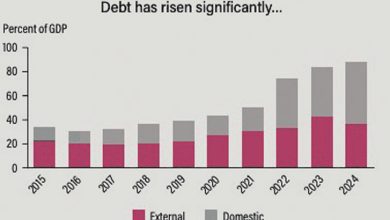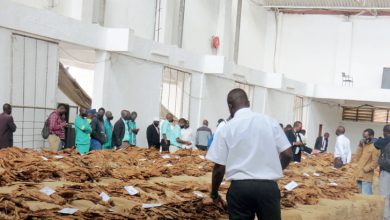Minister admits inflationary pressure, people hit hard
Minister of Finance and Economic Affairs Simplex Chithyola Banda has admitted that Malawi is grappling with inflationary pressure, which have been particularly hard on average Malawian households.
In an e-mailed response on Sunday, the minister said in 2024, food inflation hit an average of 41.6 percent, affecting people’s purchasing power.
He said just like other countries, Malawi is navigating a complex global economic landscape where growth is slowing down, inflation is rising and supply chain disruptions continue to affect economies.

Said Chithyola Banda: “Locally, we have been hit by a combination of external shocks and domestic challenges such as extreme weather conditions that have affected agricultural productivity, rising food prices and the need to manage fiscal deficits.
“We are also grappling with inflationary pressures, which have been particularly hard on the average Malawian household.”
He said despite the challenge, government is committed to stabilising the economy, focusing on long-term growth and enhancing resilience to future shocks.
Chithyola Banda said the economic strategy includes managing inflation, improving fiscal discipline and diversifying revenue sources.
He said government is also leveraging the International Monetary Fund $175 million (about K306 billion) four-year Extended Credit Facility to stabilise the macro-economy, which will help manage inflation currently at 32.4 percent as of October.
Said Chithyola Banda: “Malawi is an agricultural-based economy and food prices are often closely tied to agricultural production.
“The government has implemented measures to support food security, including increasing support for irrigation schemes and promoting agricultural productivity.”
Consumers Association of Malawi executive director John Kapito said in an interview that fresh pressure is bound to worsen the inflation situation.
“Our market inspections have shown that prices of most goods on the market have gone up by an average of 50 percent while transport costs have gone up by 70 percent,” he said.
In a separate interview, Malawi Congress of Trade Unions president Charles Kumchenga has urged employers, including the Malawi Government, to be proactive on cost of living adjustments for their employees.
He said: “The cost of living is detrimental to our economy as wages have not risen for some time and this may erode any economic gains for wages that were revised.
“For workers in the informal economy, it will be worse considering that social dialogue platforms do not exist.”
Economists have been advising authorities to intensify maize distribution to ease pressure on food prices.
Food accounts for more than half of the consumer price index, an aggregate basket for computing inflation.





